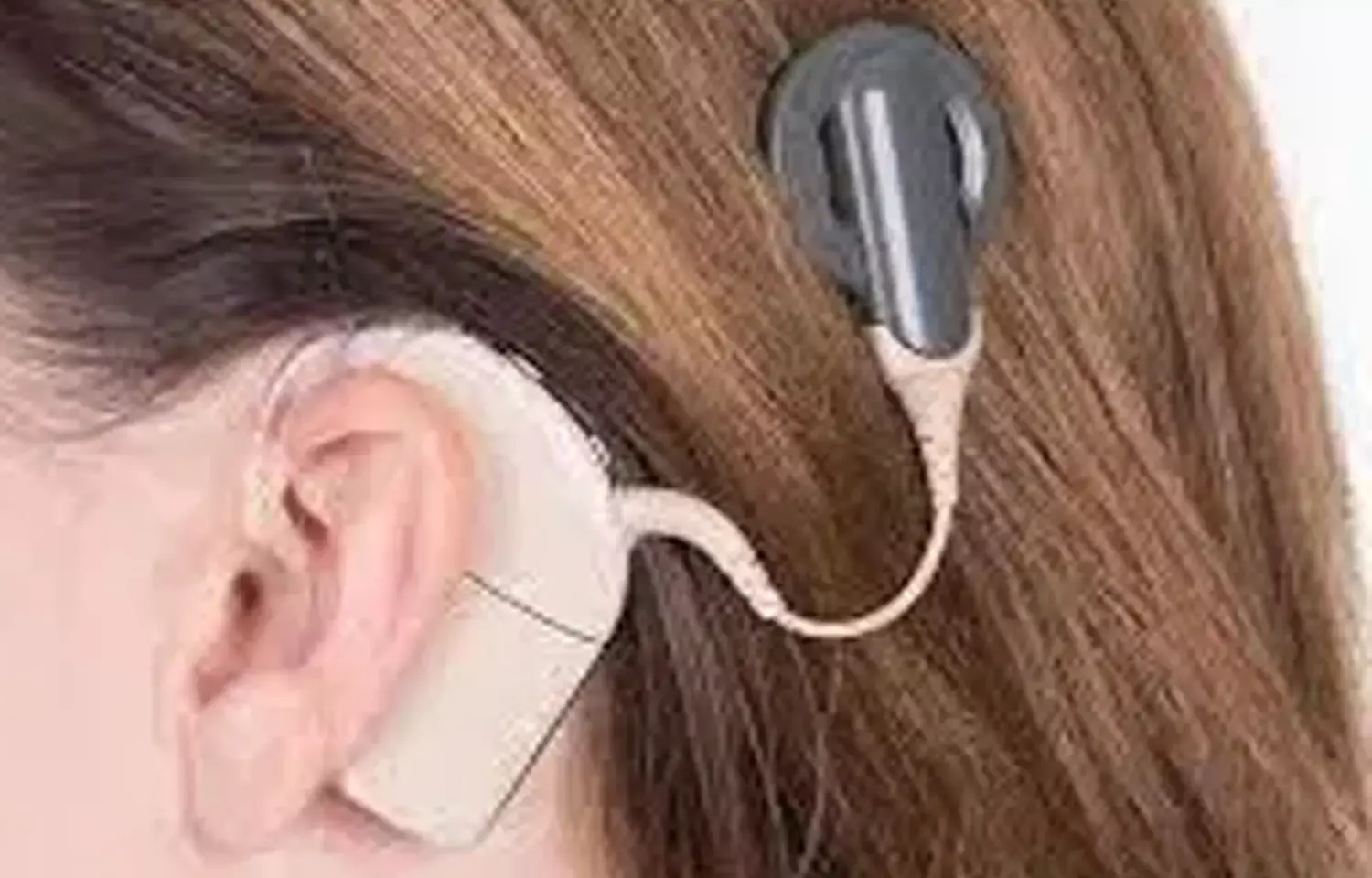- Home
- Medical news & Guidelines
- Anesthesiology
- Cardiology and CTVS
- Critical Care
- Dentistry
- Dermatology
- Diabetes and Endocrinology
- ENT
- Gastroenterology
- Medicine
- Nephrology
- Neurology
- Obstretics-Gynaecology
- Oncology
- Ophthalmology
- Orthopaedics
- Pediatrics-Neonatology
- Psychiatry
- Pulmonology
- Radiology
- Surgery
- Urology
- Laboratory Medicine
- Diet
- Nursing
- Paramedical
- Physiotherapy
- Health news
- Fact Check
- Bone Health Fact Check
- Brain Health Fact Check
- Cancer Related Fact Check
- Child Care Fact Check
- Dental and oral health fact check
- Diabetes and metabolic health fact check
- Diet and Nutrition Fact Check
- Eye and ENT Care Fact Check
- Fitness fact check
- Gut health fact check
- Heart health fact check
- Kidney health fact check
- Medical education fact check
- Men's health fact check
- Respiratory fact check
- Skin and hair care fact check
- Vaccine and Immunization fact check
- Women's health fact check
- AYUSH
- State News
- Andaman and Nicobar Islands
- Andhra Pradesh
- Arunachal Pradesh
- Assam
- Bihar
- Chandigarh
- Chattisgarh
- Dadra and Nagar Haveli
- Daman and Diu
- Delhi
- Goa
- Gujarat
- Haryana
- Himachal Pradesh
- Jammu & Kashmir
- Jharkhand
- Karnataka
- Kerala
- Ladakh
- Lakshadweep
- Madhya Pradesh
- Maharashtra
- Manipur
- Meghalaya
- Mizoram
- Nagaland
- Odisha
- Puducherry
- Punjab
- Rajasthan
- Sikkim
- Tamil Nadu
- Telangana
- Tripura
- Uttar Pradesh
- Uttrakhand
- West Bengal
- Medical Education
- Industry
Vestibular implant improves QoL, gait in patients with vestibular hypofunction: NEJM

Delhi: Vestibular implantation in patients with bilateral vestibular hypofunction may improve gait, posture, and quality of life, suggests a recent study . But may lead to reduced hearing in the ear with the implant. The study is published in the New England Journal of Medicine.
About 1.8 million adults worldwide are affected by severe bilateral vestibular hypofunction that results in postural instability, oscillopsia, chronic disequilibrium, and unsteady gait. This occurs due to failure of vestibular reflexes that stabilize eye, head and body.
Current practices involves performing vestibular rehabilitation exercises in order to avoid the use of ototoxic medications such as aminoglycosides and sedating medications such as meclizine and benzodiazepines. Also, to avoid activities that increase injury risk (such as driving, swimming, and walking in poorly lit areas). Noninvasive devices that use sound, skin vibration, or galvanic stimulation can convey enough information regarding body motion and orientation to reduce postural instability; however, they do not facilitate gait
The researchers aimed to determine if vestibular implant is effective in alleviating symptoms of severe bilateral vestibular hypofunction.
The study included people who had idiopathic (1 participant) or ototoxic (7 participants) bilateral vestibular hypofunction for 2 to 23 years. They underwent unilateral implantation of a prosthesis that electrically stimulates the three semicircular canal branches of the vestibular nerve.
Clinical outcomes included the score on the Bruininks–Oseretsky Test of Motor Proficiency balance subtest (range, 0 to 36, with higher scores indicating better balance), time to failure on the modified Romberg test (range, 0 to 30 seconds), score on the Dynamic Gait Index (range, 0 to 24, with higher scores indicating better gait performance), time needed to complete the Timed Up and Go test, gait speed, pure-tone auditory detection thresholds, speech discrimination scores, and quality of life.
The researchers compared participants' results at baseline (before implantation) with those at 6 months (8 participants) and at 1 year (6 participants) with the device set in its usual treatment mode (varying stimulus pulse rate and amplitude to represent rotational head motion) and in a placebo mode (holding pulse rate and amplitude constant).
Key findings of the study include:
- The median scores at baseline and at 6 months on the Bruininks–Oseretsky test were 17.5 and 21.0, respectively; the median times on the modified Romberg test were 3.6 seconds and 8.3 seconds; the median scores on the Dynamic Gait Index were 12.5 and 22.5; the median times on the Timed Up and Go test were 11.0 seconds and 8.7 seconds; and the median speeds on the gait-speed test were 1.03 m per second and 1.10 m per second.
- Placebo-mode testing confirmed that improvements were due to treatment-mode stimulation.
- Among the 6 participants who were also assessed at 1 year, the median within-participant changes from baseline to 1 year were generally consistent with results at 6 months.
- Implantation caused ipsilateral hearing loss, with the air-conducted pure-tone average detection threshold at 6 months increasing by 3 to 16 dB in 5 participants and by 74 to 104 dB in 3 participants.
- Changes in participant-reported disability and quality of life paralleled changes in posture and gait.
"Six months and 1 year after unilateral implantation of a vestibular prosthesis for bilateral vestibular hypofunction, measures of posture, gait, and quality of life were generally in the direction of improvement from baseline, but hearing was reduced in the ear with the implant in all but 1 participant," concluded the authors.
Dr Kamal Kant Kohli-MBBS, DTCD- a chest specialist with more than 30 years of practice and a flair for writing clinical articles, Dr Kamal Kant Kohli joined Medical Dialogues as a Chief Editor of Medical News. Besides writing articles, as an editor, he proofreads and verifies all the medical content published on Medical Dialogues including those coming from journals, studies,medical conferences,guidelines etc. Email: drkohli@medicaldialogues.in. Contact no. 011-43720751


